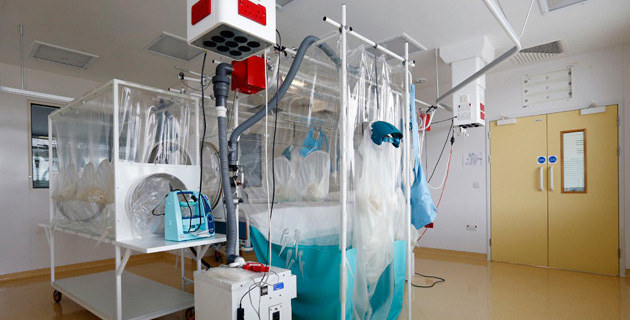News
British Hospitals Plan Ebola Drills

Health-care providers in developed countries are finally waking up to the fact that they need to prepare for imported Ebola cases like those seen this week in Dallas and Madrid. In the United Kingdom, where no cases have been reported, two major hospitals are beginning drills this weekend to simulate the arrival of an Ebola patient, according to the Daily Mail. The paper noted some hospitals had not yet received recommended protective gear.
In the U.S., unlike Britain, hospitals aren’t controlled by a central government health system. The Centers for Disease Control has been distributing guidelines for health-care workers and urging officials to take precautions. “One of the things we’re working hard to promote now is ensuring doctors, nurses, pharmacists, health-care workers throughout the health-care system ‘think Ebola’ in anyone who has fever and ask whether they have been in West Africa within the past 21 days,” CDC Director Tom Frieden told reporters Oct. 8.
Drills have taken place at hospitals in New York City and elsewhere. The goal is to ensure that frontline workers know to get patients’ travel histories and properly isolate those who may have been exposed to the Ebola virus. Making sure medical staff properly protect themselves is another priority, after a nurse who treated an Ebola patient in Madrid became infected.
All hospitals have infection control plans, and most are likely reviewing and updating them, says Ken Anderson, chief operating officer of the American Hospital Associations Health Research & Educational Trust. Facilities have successfully prepared for other outbreaks of infectious diseases, including SARS and MERS, and U.S. hospitals shouldn’t need additional equipment to get ready for potential Ebola cases, he says.
Drills may take place at hospitals with simulation suites, Anderson says, though he couldn’t estimate how common this is. Regardless, he says, everyone’s more sensitive to the possibility of Ebola since the the Dallas case has made headlines. “It would be very difficult for any hospital in the country to not pick up a newspaper without seeing that Ebola is a potential threat,” he says.